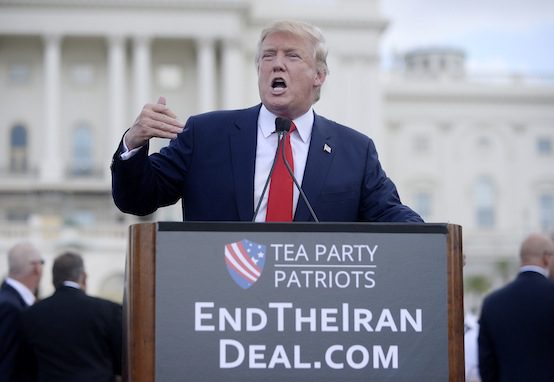Trump the Hawk

If there is one useful thing to come from Trump’s bad decision to escalate the war in Afghanistan, it is that it has once and for all killed off the idea that Trump was ever inclined to end America’s open-ended wars. I hope it also has put to rest the false assumption that Trump’s use of the phrase “America first” meant anything beyond a statement of generic aggressive nationalism. As a candidate, Trump was quick to denounce previous wars as disasters, but his complaint about these wars was that the U.S. wasn’t “getting” anything tangible from them. He didn’t see anything wrong in attacking other countries, but lamented that the U.S. didn’t “take” their resources. That is not what I would call an antiwar argument.
During the campaign he never called for an end to the wars that were still ongoing, but talked only about “winning” them. He explicitly campaigned on escalating the war on ISIS (and he has done that), and he never committed to ending U.S. involvement in any other conflict (and there is no danger he will ever do that). He picked up the phrase “America first” after he heard the phrase in an interview with two New York Times reporters. He clearly didn’t know where it came from or what it meant, but it sounded good and he ran with it. Trump was never the candidate of restraint or peace or non-intervention, but if we judge him on substance rather than slogans he never pretended he was. He had the good fortune to run against a Democratic candidate with a consistently hawkish and poor foreign policy record, and if he was mistaken for something other than a hawk it was because his opponent would have made almost anyone seem dovish by comparison.
If his first instinct on Afghanistan was to withdraw, as he claimed in his speech, it must not have been a very strong instinct. It is one of the few times that Trump has managed to refrain from following his instincts as president, and it was the one time that he shouldn’t have. So much for the argument that Trump’s instincts can make up for his lack of foreign policy experience and knowledge.
Just before the election, I gave some of the reasons why I couldn’t possibly vote for Trump, and they seem worth revisiting this week:
He can’t be trusted and changes his positions to whatever suits him at the time, but his stated foreign policy views are mostly awful or incoherent anyway. Trump takes a number of positions that make him just as unacceptable as any previous Republican nominee from this century. He isn’t really antiwar, and he’s definitely not antiwar when it matters (i.e., before the war starts). He routinely denounces the results of diplomatic engagement, wants to bring back torture, rejects the nuclear deal, takes a shamelessly pro-settler view of the Israeli-Palestinian conflict, and seeks to have an even more bloated military budget than we already do.
Trump’s hawkish positions weren’t a secret before the election, and he made no effort to conceal them. His hawkish policies as president shouldn’t come as a shock, especially when he had none of the relevant experience or knowledge he would have needed to push back effectively against the hawks that he surrounded himself with. As I noted earlier this year, a president as ignorant and inexperienced as Trump is much more susceptible to being pressured and influenced by his advisers. He is the least likely to be able to challenge Washington’s prevailing assumptions about the U.S. role in the world. Even if Trump were interested in challenging those assumptions (and for the most part he really isn’t), he doesn’t have the knowledge or preparation to do it.
Comments